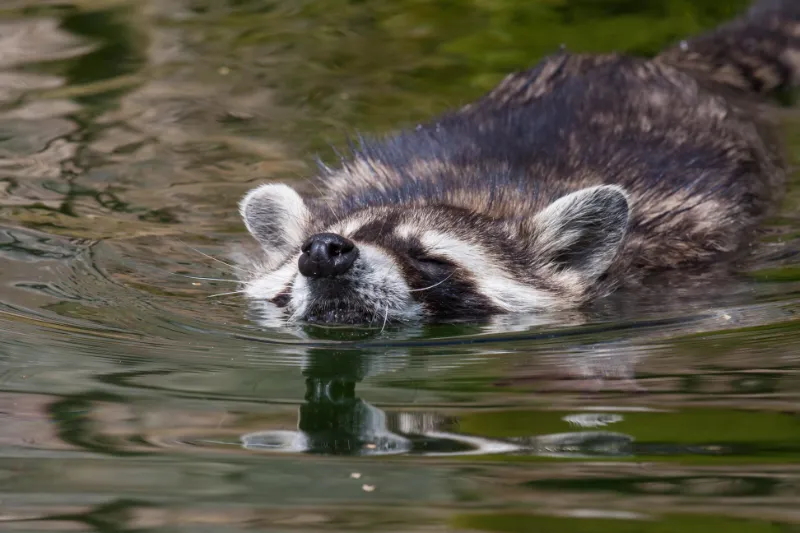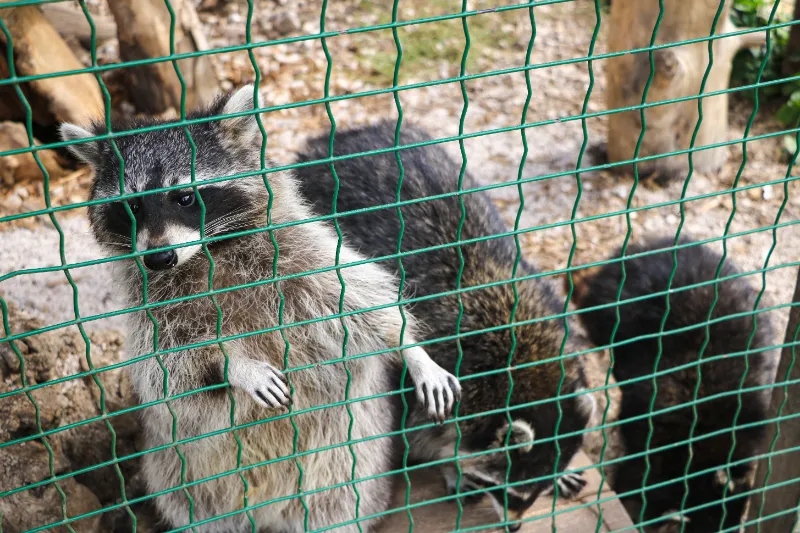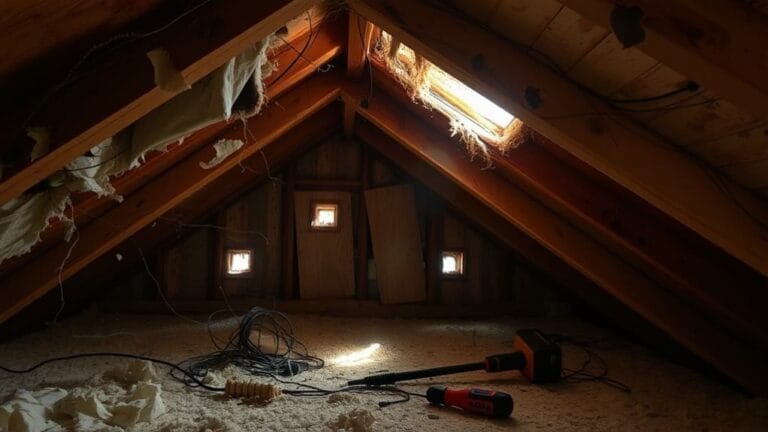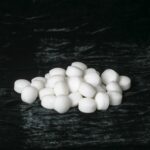Are you looking for a way to keep raccoons away from your property? Have you heard that bleach might do the trick but need to know if it works?
In this blog, we’ll explore the pros and cons of using bleach to keep raccoons away from your property and provide alternative solutions that may provide more effective and humane results.
We’ll also discuss what chemicals raccoons hate, what smells they hate most, and whether bleach harms them. Let’s get started!
What is Bleach?
Table of Contents
You may wonder what bleach is and how it can help keep raccoons away. Bleach is a disinfecting agent of chlorine and other chemical components, such as sodium hypochlorite and calcium hypochlorite. It has a strong scent, which repels animals like raccoons.
When diluted with water, it can clean and sanitize surfaces and kill bacteria, fungi, and viruses.
It can also deter raccoons from entering your garden or yard when applied near rodent nests.
Bleach does not harm raccoons; it spreads the smell and keeps them away from your trash.
How Does Bleach Work?
Bleach is a chemical that produces a strong, unpleasant smell when it comes into contact with air.
This smell is repulsive to raccoons, and they will avoid any areas where bleach has been used.
The smell of bleach will also linger for quite some time, which can help keep raccoons away from any areas where it has been used.
The fumes produced by bleach can irritate raccoons’ eyes, noses, and skin, further deterring them from the area.
How to Use Bleach to Repel Raccoons
Using bleach to repel raccoons is a simple and effective way to keep them away from your property’s trash, garden, and other areas.
Before using bleach, it is crucial to understand how it works and the best practices for using it safely.
To use bleach to repel raccoons, mix a solution of one part bleach and ten parts water, then spray or pour it around the affected area.
Ensure to rinse the area afterward, as undiluted bleach can be dangerous if ingested.
While using bleach, it is essential to note some potential drawbacks, such as its potential toxicity to humans and animals.
Therefore, using it carefully and safely is vital to protect yourself and your property.
Advantages of Using Bleach to Repel Raccoons
Using bleach to repel raccoons has many advantages.
- For one, it is an inexpensive solution that can be easily found in any home or hardware store.
- Bleach also has a strong smell that can repel raccoons away from your garbage and other areas they may be attracted to.
Disadvantages of Using Bleach to Repel Raccoons
Using bleach to repel raccoons is not without its drawbacks:
- It can be dangerous if misapplied. Undiluted bleach can cause skin irritation and respiratory issues if inhaled.
- The harsh chemical smell can irritate other animals or people in the area, making it an unpleasant experience for everyone involved.
- It needs to be reapplied frequently to remain effective and can be challenging to clean up.
- It is only temporary, as raccoons will eventually become accustomed to the smell and return to your property once it dissipates.
Alternatives to Using Bleach to Repel Raccoons
You can use several methods, such as motion-activated lights, noise makers, and even ammonia and vinegar solutions.
- Motion-activated lights are an excellent deterrent for raccoons as the sudden light startles them and makes them less likely to stay in the area. Noisemakers such as radios or whistles can also help keep raccoons away.
- Vinegar solutions can also deter raccoons from the site; however, they should be used cautiously since they are strong and can be dangerous if inhaled or ingested.
Regardless of your chosen method, it is essential to remember that these alternatives should be combined for maximum effectiveness.
Does Bleach Harm Raccoons?

Even though bleach does not directly hurt raccoons, applying undiluted bleach near rodent nests can deter them since the scent of bleach repels them.
- However, it is essential to note that bleach should not be used as a permanent solution as it can negatively affect the environment and may even lead to a build-up of toxins in the soil.
- Since bleach is a chemical, the powder could be inhaled by the raccoons and cause health problems.
Therefore, it is best to use alternative methods to deter raccoons from your garbage, such as ammonia or other natural repellents.
What smell do raccoons hate the most?
Raccoons are not fond of strong smells and odors, especially those unpleasant to human noses.
- Among the smells that raccoons dislike are hot pepper, onion, garlic, peppermint oil, and Epsom salt.
- Hot pepper is one of the most effective scents for keeping raccoons away, as it irritates their nasal passages.
Conclusion
- It is essential to remember that bleach should not be used in areas where children and pets may be present, as it can be toxic.
- It may only keep raccoons away for a short time before they become accustomed to the smell and return.
- No matter which repellent you choose, it is best to use a combination of methods for the most effective outcome.








